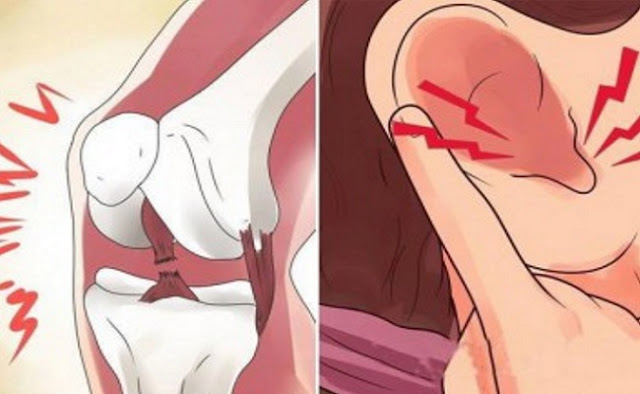What Hiccups, Ringing Ears, Popping Joints and Whistling Nose Mean to Your Health! A MUST-READ!
Sometimes you may be embarrassed in front of other people, when you suddenly hear some sounds from your stomach. However, out body always sends some signals in order to warn us of something going on inside.
Bodily sounds are actually really useful, as they may be of great help. After all, these sounds are the means by which our body communicates with us.
In most cases, they are harmless and should not concern you, but if they are persistent, you may need to consult your doctor in order to examine the situation thoroughly.
What Do These Bodily Sounds Indicate:
Ringing Ears
Sometimes, if you go to a music concert, or if you listen to loud noises during your work, you may hear a slight faint ringing in the ears. However, this may be a warning sign if you experience this regularly. It may be a symptom of tinnitus.
The main causes of tinnitus are some ear damage or infection, or the usual process of aging. Namely, our ears should send sound waves to our brain as soon as they receive them, but in the case of tinnitus, our ears keep sending these signals to the brain, due to the damage.
Moreover, you should consult your doctor if this symptom is accompanied by vertigo or pain, as you may suffer from some neurological disease.
Popping Joints
If you have heard about the belief that you may cause arthritis if you crack your knuckles, we need to form you that it has been scientifically proven that it is not true.
There is fluid in our joints that lubricates them. Yet, you may hear a pop if you do some sudden movement, like standing up from a squatted position.
If this popping is accompanied by severe pain, reduced mobility or stiffness, you may have suffered an injury or a ruptured ligament. Moreover, it this popping is developed into a grinding, it may be a sign of an early stage of osteoarthritis.
Whistling Nose
If you have a whistling nose, your airways are probably blocked due to excess mucus. However, this may also be a symptom of a tear in the cartilage if you have suffered some trauma on the nose. In this case, you need to consult your doctor, as this situation demands a surgery.
Hiccups
You may have tried numerous ways to stop the hiccups, like drinking water, or holding the breath. But do you know what actually causes hiccups?
In the case of an interruption when we breathe in, our diaphragm spasms and leads to hiccups. The vagus and phrenic diaphragm may control the diaphragm, and are triggered by medications, excitement, or the stomachs after a meal.
You actually can stop the hiccups if you hold your breath for some time, as the larger amounts of carbon dioxide in the lungs relax the diaphragm.
Nevertheless, if the hiccups continue for a long time, more than 48 hours, you need to consult your physician as it may be a symptom of an irritation of the nerves. Moreover, hiccups may also be a warning sign in the case of stroke, so you should never ignore it if it is combined with pain or shortness of breath.
Stay healthy and positive! Share and make your loved ones aware!
Sources: The Hearty Soul | Bel Marra Health








Walang komento